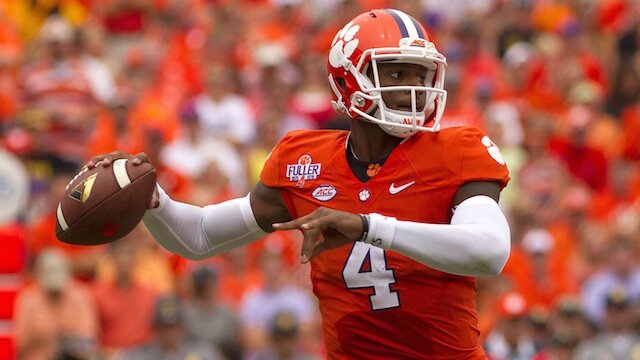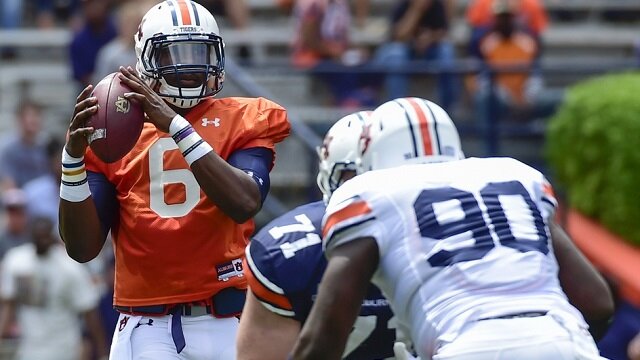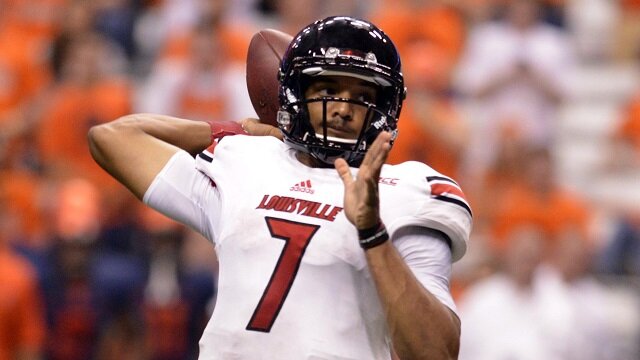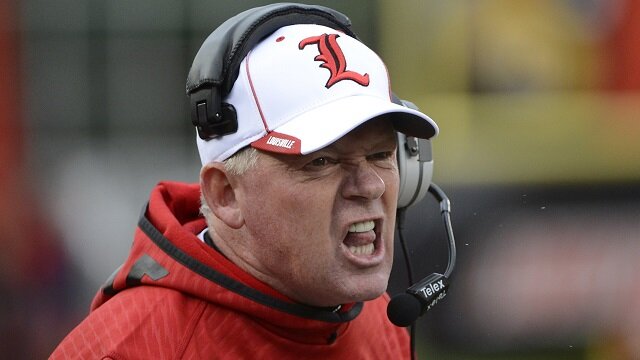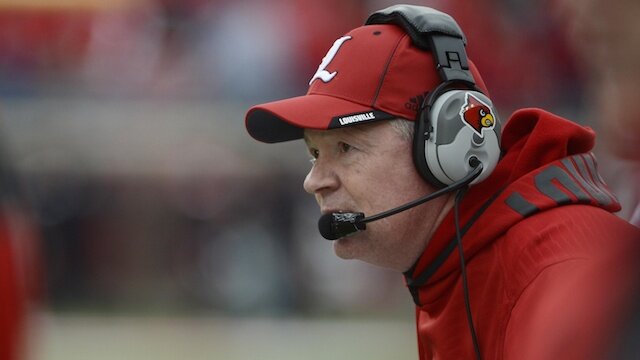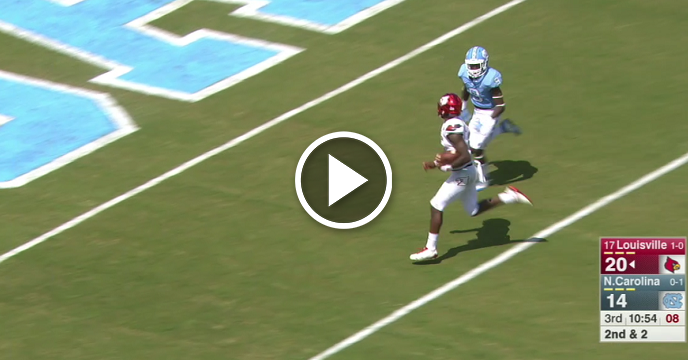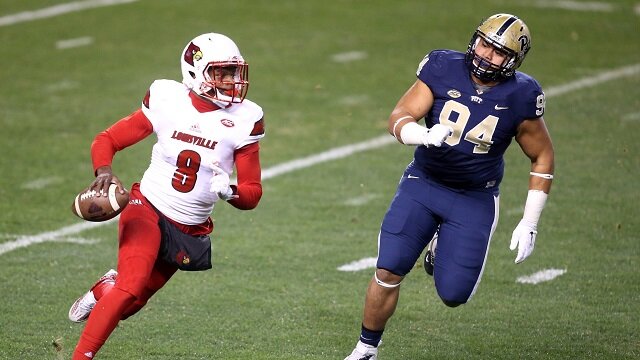
When Charlie Strong signed an eight-year extension to remain coach of the Louisville Cardinals, it did my heart as a sports fan good to hear it. This isn’t because I enjoy college football more than pro football (I do) or because I’m a particularly a big fan of the Cardinals (I’m not). It also isn’t because of the work Strong has done in his years coaching the Cardinals or his time as a coordinator with the Florida Gators. The reason I’m so thrilled that Strong is staying with the Cardinals is the simple fact that he is staying and rejected an offer from a school (the Tennessee Volunteers) that could have paid him more money.
I use the term “high-class whores” in conversation to generally describe college football coaches these days. I know it sounds harsh and maybe it is harsh, but I don’t think I’m that far off. I am not ashamed to admit that the fan in me has become jaded to the point of intense anger with the state of coaching in college football. It’s probably just that I’m someone who is having issues coming to grips with the changing nature of the game and its coaches. If that’s the case, I’m glad.
I understand the need for someone to be career-minded. Everybody has to make a living. And if you can make a living doing something you love or something that can bring you fame and fortune, why not look out for your best interests, right? I understand all of that. What I don’t like is when that kind of mindset is not only widespread, but is becoming commonplace.
The best way I can explain what I’m feeling is through the story of a conversation my cousin and I had during this season. We were talking college football and when we got to coaches, we started reminiscing about the days of guys like Bobby Bowden and Joe Paterno. To the days when it was more common to see a coach stay at the same school for ten or twenty years. Those days aren’t that far gone, but they sure feel that way. I’ll never forget the way he said, “That breed is dead.”
And he’s right. Today’s breed of head coach in the college game is one that is hopping from job to job, building a résumé for the day when he might get a shot at a job in the NFL or with the Notre Dame Fighting Irish, or something of similar stature. It’s not about building something the way it used to be. It’s become a rash every year around December when coaches begin defecting from teams they had brought to bowl games for a job with someone else. Maybe they got paid more, or it’s in an automatic-qualifier conference, or it’s a bigger name team, but the reasons really don’t matter at the end of the day. The coaching carousel has become a yearly event and it’s only a question of whether it’s a lot of coaches being fired or a lot of coaching ditching teams before and after bowl games.
And the saddest cases are the coaches that leave something great for something (the NFL) that has historically been unfriendly to college coaches. There have been great exceptions, but why would you want to leave something good for something unknown? The challenge? Maybe. In the case of Chip Kelly, the main person I’m referring to here, it likely is about the challenge of creating a winner at the pro level, and the money, can’t forget about that. But if he was completely satisfied with his run as coach of the Oregon Ducks, then he was a coach willing to settle. No challenge left? I don’t see any national championship ring on any of Kelly’s fingers, and that is the ultimate goal of any coach who has had the kind of success with one team that Kelly had during his time with the Ducks.
There are signs of hope that the ratio will even out and we will see more coaches stick around and build their own winning traditions with a single team. Les Miles along with Strong are two great examples of that. I’m not naive enough to believe that either man would stay if a good enough opportunity in the NFL came along and they wanted it. However, the fact that both of these men signed the extensions they did is a message that they intend to continue to build what they have going with their respective teams. That is something that is needed more in college football today because it really seems that in the last five to seven years that it has just become one big revolving door in college football where coaches that didn’t have long tenures with teams prior to that point in time simply wouldn’t stay with a team for more than five years if a better job came around or unless they were having tremendous success with that team. That’s actually my theory on why Kelly stayed in Eugene as long as he did: if the Ducks had been only having marginal success, he would have been out of there for a better job in a heartbeat.
It’s a greater message sent by Strong in my opinion because he’s so new to being a head coach with this year being only Strong’s third season as one. Hopefully his desire to build something in Louisville won’t turn out to be the ramblings of a true-believer at the beginning before he is corrupted and turned into the opposite of what he once was.
Phil Clark is a writer for Rant Sports. Follow him on Twitter or Facebook. Or check out his blog.
 Share
Share 


